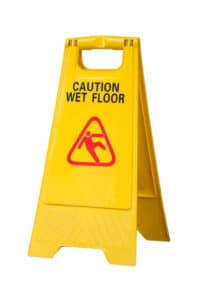Just because you signed a liability waiver does not mean that you have given away your right to sue in the event that you become injured, especially when the responsible party has shown “gross or willful negligence or lack of informed consent.” It is common to sign a waiver when you are dealing with commercial property, recreational activities, health service providers and other instances when participating in voluntary interests.
What is the purpose of a liability waiver?
A liability waiver is an agreement or a type of contract between a service provider and an individual that basically states that the person engaged in the activity or event is doing so as a voluntary participant and is aware of all potential risks and will not sue the provider in the event of injury.
Are there regulations that determine the validity of a liability waiver?
A liability waiver is a legal document and has several components that must be adhered to in order to be deemed legally binding.
For example:
- The waiver must use language that is uncomplicated and clear in order for the participant to be able to fully comprehend the terms.
- The terms of the waiver cannot be placed in fine print or in an obscure location and must be clearly visible and legible so as not to mislead or deceive the participant.
- The waiver covers an injury sustained under “ordinary negligence” and does not cover the business or service provider in the case of “gross or willful negligence or lack of informed consent.”
- Ordinary Negligence by definition is: Conduct that falls below the standards of behavior established by law for the protection of others against unreasonable risk of harm. A person has acted negligently if he or she has departed from the conduct expected of a reasonably prudent person acting under similar circumstances.
- Example: You signed up and went on a hiking excursion while on vacation at the Grand Canyon, and there is a malfunction with the hiking equipment during the activity which causes you to fall and become injured. The hiking company’s failure to inspect their equipment prior to yours and other participants’ use is considered “ordinary negligence.” When you sign a liability waiver or release, you are waiving your right to sue even if you experience this type of negligence despite the fact that you were injured due to the hiking company’s failure to act reasonably as it relates to general safety.
- Gross or Willful Negligence by definition is: The “lack of slight diligence or care” or “a conscious, voluntary act or omission in reckless disregard of a legal duty and of the consequences to another party.”
- Example: You signed up and went on a hiking excursion while on vacation at the Grand Canyon, and the guide leads you to an area where you are required to repel down the rock; however, they did not disclose that you would be involved in such a technical activity, and while you were engaged in repelling, the equipment failed, causing you to fall onto the rocks below and break your leg. This example of “gross negligence” could be grounds for a lawsuit as you were uninformed, and the company was reckless in its preparation.
- Lack of Informed Consent by definition is: Failing to get permission granted in the knowledge of the possible consequences, typically that which is given by a patient to a doctor for treatment with full knowledge of the possible risks and benefits.
- Example: In general, when a physician does not give a patient proper information about the known risks involved in a procedure, and the patient is harmed in the process, this could be a case of lack of informed consent causing harm. There are some cases in which a procedure is performed that is different from the procedure the patient has agreed upon. The only instance where this may be permissible is in an emergency.
In which cases can a waiver be deemed invalid?
- If the waiver has incorrect verbiage or excludes specific phrases in the clause, it may be deemed invalid.
- In most states, courts deem a waiver invalid if the wording is such that it intends to protect a service provider from liability for gross negligence, reckless or willful misconduct.
- If the waiver is not signed by the person who it is being used against, it will be deemed invalid.
If you have been injured as a result of “ordinary negligence,” it is possible that the liability waiver you signed may hold up in court and protect the provider of the service from a lawsuit. However, if “gross negligence” on their part caused your injury, you may have a case.
Most importantly, you must be represented by attorneys like the ones at Richard Harris Law Firm, who are experts in personal injury law, are highly knowledgeable about cases involving liability waiver disputes and will help you determine the facts of your case. Contact us today for a free legal consultation!





























